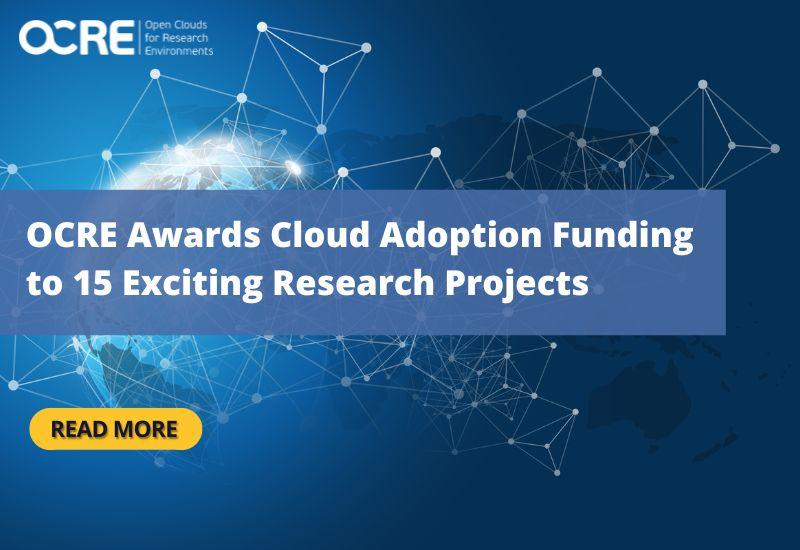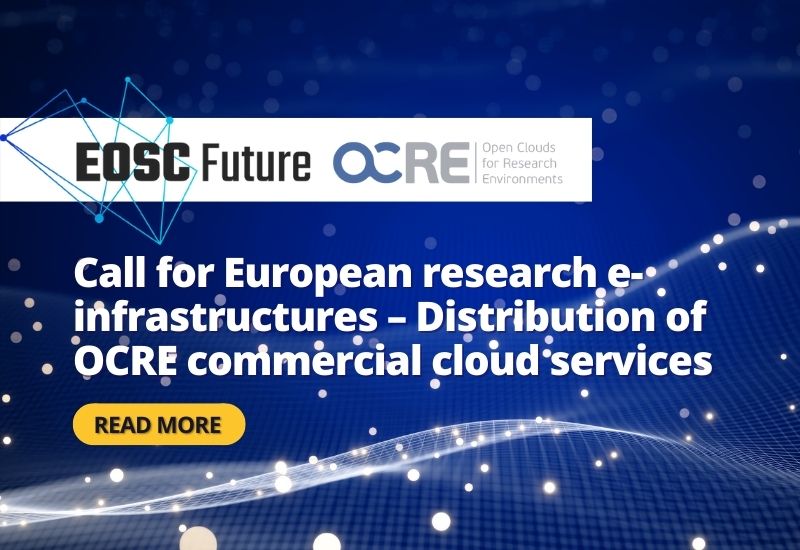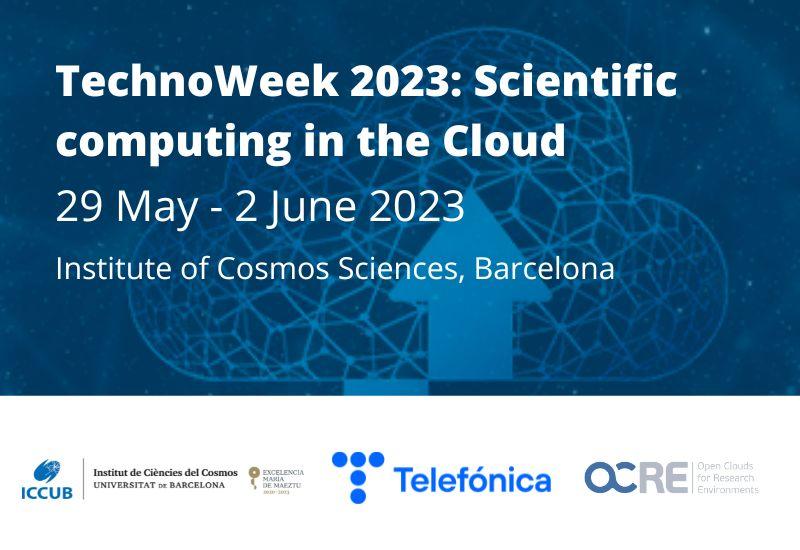
September 26,2022
News

15 innovative research projects will benefit from commercial cloud solutions through EU cloud project Open Clouds for Research Environments (OCRE), demonstrating the adoption and effectiveness of commercial cloud services in research.
Approximately €6 million will be distributed to the successful applicants, each receiving between €100,000 and €500,000. This is the second and final call run by the OCRE project for the adoption of the cloud services available through the OCRE IaaS+ framework agreements. It proves a new funding mechanism with commercial cloud providers teaming up directly with researchers to apply. All applications were screened, evaluated, scored and ranked by the OCRE cloud adoption funding team and overseen by the OCRE External Advisory Board.
The distribution of cloud adoption funding is a key milestone in OCRE’s goal of piloting a digital single market for cloud and digital services for European research. This second cloud call, along with the Earth Observation services call, has allowed OCRE to use the project’s remaining funding budget before the close of the project to help researchers get the tools and services they need, and demonstrate the value of these.
OCRE Project Director, Dave Heyns (GÉANT) said, “Working closely beside researchers, collaborating with commercial cloud services providers on innovative digital services in support of research agility and improved outcomes, has been extremely fulfilling for the entire OCRE team. We believe that we have demonstrated the significant benefits that commercial cloud computing bring to the European research community, and have contributed towards making these services more easily accessible to the researchers. ”
Funded Projects:
Healthcare
The University of Antwerp’s Human Molecular Genetics (HMG) research group was successfully funded, and will use the OCRE cloud resources for genetic analysis and data storage. Their specific research is on newly identified biomarkers for diseases (such as forms of cancer) which can be detected through simple blood tests, and analysed to understand progression and responses to various treatments.
University of Burgundy has been funded for their project working to build a training solution for health professionals and students in the Metaverse, accessed either with VR technology or simply with a headset and device.
The Università di Padova have been funded in their project to study federated machine learning cloud systems for precision medicine/healthcare, by developing and implementing large-scale federated deep learning models that can be trained and deployed on high-performance cloud systems.
Princess Máxima Center for Pediatric Oncology has been funded in their project to use cloud services to create a Comprehensive Childhood Cancer Commons, harmonised data collection of childhood cancer genomes and perform state-of-the-art data analyses to support innovations in childhood cancer research, diagnostics and treatment.
Virtual Aorta by the University of Galway has been successfully funded which will develop patient-specific in silico test beds for aortic aneurysm and dissection to facilitate advanced diagnostics and accelerate the development of new therapeutics and medical devices.
Predictive Algorithms for Detection of Intimate Partner Violence (IPV) in the Healthcare System by CESPU has been funded. It will develop a predictive model for IPV based on latent risk factors that may exist in electronic health records regularly produced by healthcare professionals during routine care.
The CODALIFE project by Cork University Maternity Hospital (CUMH) and the Coombe Women’s Hospital in Dublin has been funded and aims to bring radical improvement in clinical decision-making about the stabilisation of preterm babies by developing and testing an evidence-based framework using Machine Learning for clinical decision making in the first minutes of life.
Environment
Another funded project from the University of Galway is StreamAIR, which will upscale a Air Pollution monitoring application, moving it to cloud to solve architectural and scaling challenges, and allowing it to add new features only made possible by cloud, such as climate change-oriented models or even to add metrics covering air quality from volcanic ash clouds or indeed the air quality impact of geopolitical current events.
MATS_CLOUD project from a collaboration between University of Twente (The Netherlands), University of Oslo (Norway), and EURAC Research (Italy), funded by OCRE to map annual global glacier inventories and surface types, to better understand the impacts of climate change.
Digital Technologies
The iCANDID project from the Katholieke Universiteit Leuven has received OCRE Adoption funding to develop a FAIR (Findable, Accessible, Interoperable Reusable) data hub for the Social Sciences and Humanities to assist researchers in the otherwise tedious and time-consuming data collection- and preprocessing process.
Computer Laboratory of Burgundy has been funded for their project DEEP LEARNING for GRAPHS which aims to automate the use of semantic content to make it accessible without further processing. This would make it possible to interact in natural language with content in multiple languages, while querying it in natural language and obtaining answers of a quality equivalent to their sources.
The Università di Padova along with the Università Svizzera Italiana have also successfully been funded for a second project with a different research team focusing on a Machine Learning paradigm called Incremental Learning, or more specifically a subclass of this called Lifelong Learning, which allows the model to continuously adapt while still remembering previously learned tasks.
CLOBOT by INESC TEC has been funded and addresses the emerging field of Cloud Robotics and promotes the usage of cloud-based services both in the development lifecycle of robotic applications and in support of robots in operation to foster the adoption of advanced automation solutions by SMEs and in new industrial sectors.
The OpenIreland Project by Trinity College Dublin has been funded and will explore the research question of what type of computing resources can be used to support an OpenRAN deployment and especially whether a public cloud can replace some or all of the software processing functions that are currently carried out in dedicated hardware servers. This could further improve the cost benefit of this technology.
OCRE is dedicated to reporting on the success of these funded projects in our dedicated Success Stories website section. You can already read about our previously funded projects.



